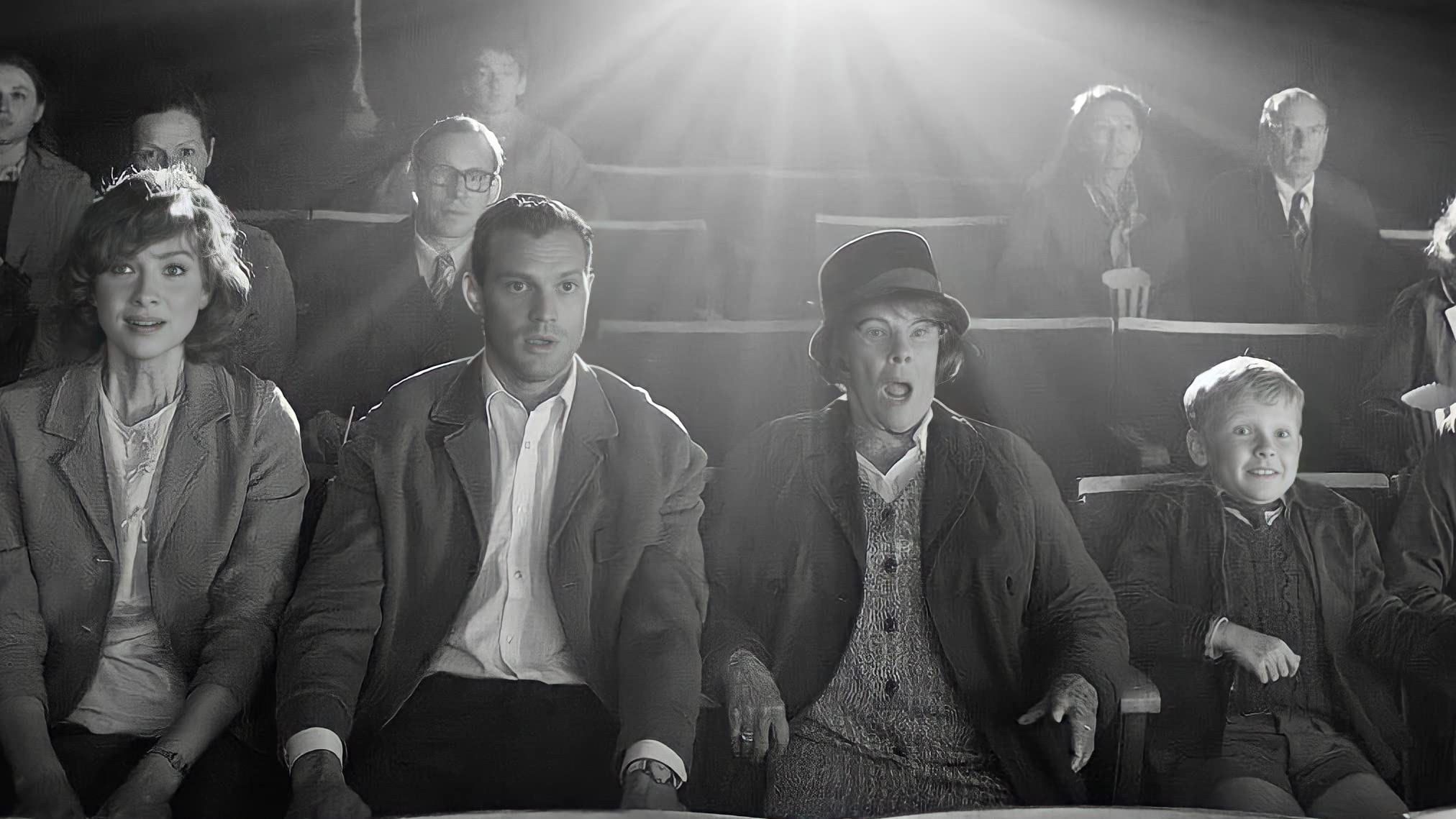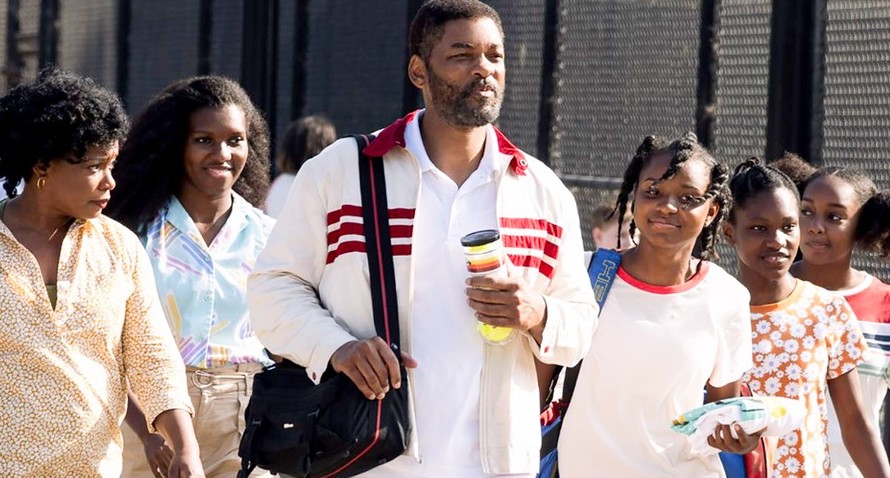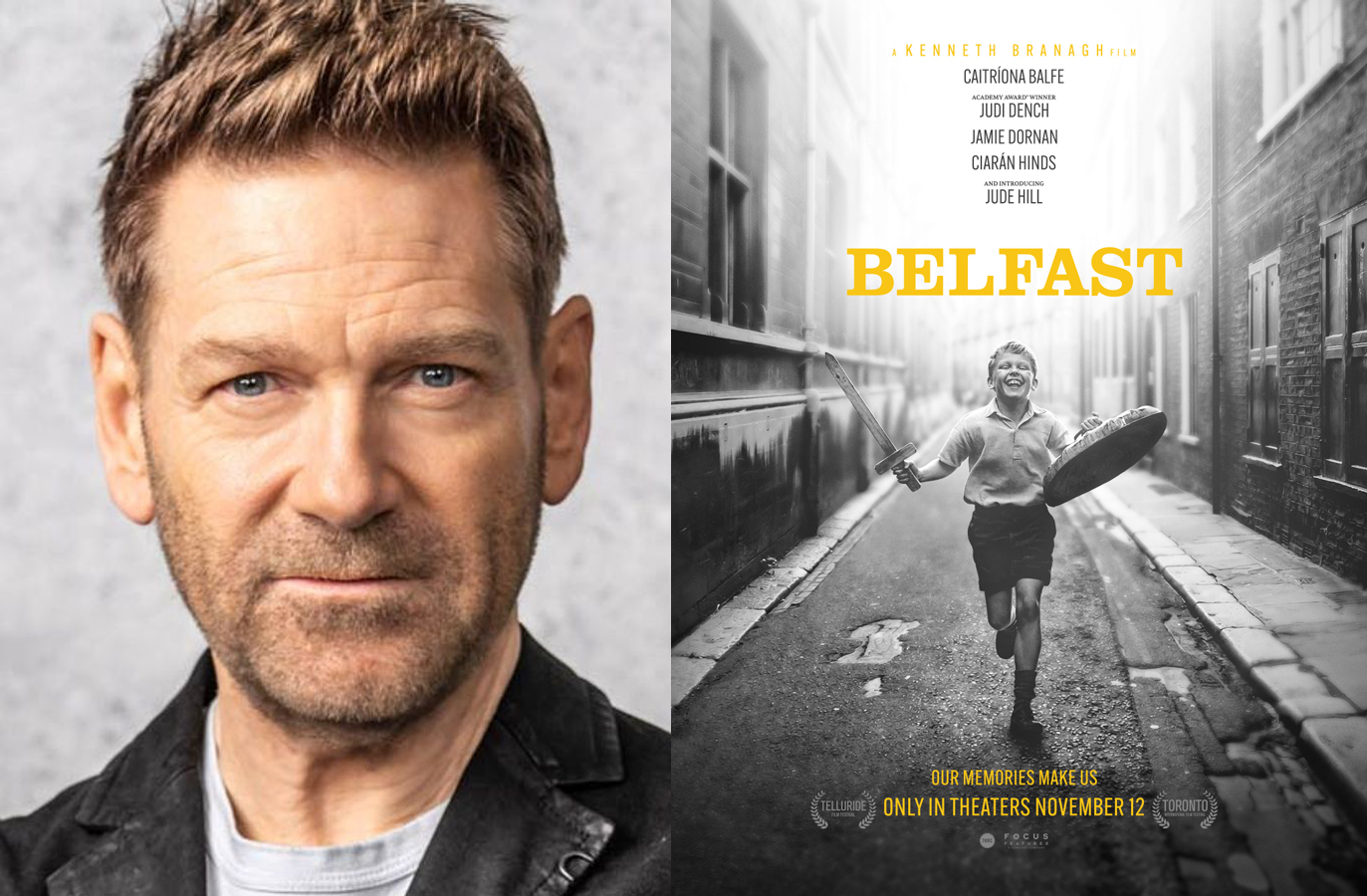by Nathaniel R
 The family watching "Chitty Chitty Bang Bang" in BELFAST
The family watching "Chitty Chitty Bang Bang" in BELFAST
The 9th annual Middleburg Film Festival wrapped up Sunday night but they programmed well so the joy lingers. The two events that always have after parties, Opening Night and Saturday Centerpiece, were King Richard and Belfast respectively. In both cases you could feel the love in the room even before the booze began to flow. Since the Middleburg audience is a reasonably good proxy for the bulk of Oscar voters (mature, well to do, cultured, and with movie tastes that fall somewhere between critics and the general public) it's easy to imagine both films greeted just as warmly on Oscar nomination morning...
King Richard
Will Smith headlines this crowdpleaser as Richard Williams, the ambitious father of tennis superstars Venus and Serena. Williams was the prime author of his own mythology, and famously "planned" to raise his future daughters as tennis prodigies in 1978 after seeing Virginia Ruzici play on television. For timetables sake, that was a year before he even met the mother of those future daughters.

Though it's based on a true story, this one hews much closer to the tropes of the inspirational sports movie than it does to the biopic genre. That's in part because it's only sort of about the famous celebrity at its center (in this case Venus Williams and, to a lesser extent, her younger sister Serena) instead focusing on the determined parents. Parents, plural, comes with a caveat. Aunjanue Ellis is fantastic and invested as Brandi Williams, and argues well for her own part in the rags-to-riches dream journey of the family in a veritable FYC ad of a scene. But, that said, Director Reinaldo Marcus Green and the screenplay by Zach Baylin often sideline her in favor of the aggressively self-promoting and charismatic Richard. The film commits the typical biopic sin of sanding over the protagonist's rougher edges and flirting with hagiography (Williams infidelities and multiple other children as well as his refusal to listen to input from his wife and daughters, for example, are only pointedly referenced once or twice to make a point). Mostly the film shows him as a freakishly tireless almost psychic coaching father. Though the film is handsomely mounted it's not particularly exciting on a craft level (aside from arguably its enthusiastic editing, which gets a workout in the tennis sequences) but the cast is involving, particular Williams and Ellis but also the sweetly evocative Saniyya Sidney as Venus and the ubiquitous Jon Bernthal who is fun as heavily invested star coach Rick Macci. In a way Macci is an ideal audience proxy for the impatience and exasperation of dealing with both the stubborn always-right protagonist and the film's overlong running time. He paces and waits and protests, less patiently each scene, for his chance to finally throw Venus on to the competitive clay to become a superstar.
Belfast
Kenneth Branagh's love letter to his early years in Ireland, took the Audience Award at Middleburg (just as it had in Toronto). Even if Branagh hadn't arrived in the lovely Virginia town, beaming with pride, to introduce the film and talk to the audience afterwards, it would surely have still won. In his intro he cited Pedro Almodóvar's Pain & Glory (of all things) citing's the Spanish auteur's use of "auto-fiction" to describe his own very different movie.

Being an early frontrunner for Best Picture rarely means a smooth road to Oscar glory. When you're placed at the top too early you become a highly visible target. What's more the hype can sometimes backfire. Focus is wise to be releasing the film in November instead of late December because it's slight enough (I mean that as neither a pejorative nor a compliment) to suffer if people get too hyped before seeing it; "you mean, that's it?!?" Belfast only has the bare bones of a "story" preferring to play more like a collection of revered memories as a young boy (cherubic Jude Hill as "Buddy") observes his impossibly dreamy and glamorous parents (played by impossibly dreamy and glamorous Caitriona Balfe and Jamie Dornan) struggling with big decisions about the family's future while he keeps getting into trouble and failing to comprehend the severity of The Troubles that are erupting in the town he loves. It's easy to quibble with Belfast's easy broad emotions and glossy production when confronting a time of chaos and complexity but it those choices spring from its child's eye view (peaks at 60s entertainments like Chitty Chitty Bang Bang and One Million Years BC are movie magic to Buddy's eyes) the ensemble is charming, particularly Ciaran Hinds as "Pop". The best thing about Belfast is its blissful running time of just 98 minutes. It ends exactly when it should (and with a glorious send-off by a beloved Dame no less!), a skill that is nearly lost in today's movie industry.
TRIVIA YOU DIDN'T ASK FOR: If Belfast wins Best Picture in March 2022 it will become the third shortest film to win Best Picture and only the fourth with a running time under 100 minutes. The other short winners are Marty (1955) at 90 minutes, Annie Hall (1977) at 93 minutes, and Driving Miss Daisy (1989) at 99 minutes.
NOT EXACTLY TRIVIA: This is harder to qualify, for obvious reasons, but if Belfast wins it will also be the most family friendly movie to pull off the Best Picture prize since 1968 (Oliver!) which is ironically about when Belfast takes place!
UPDATED OSCAR CHARTS
Best Picture, Best Actress, Best Actor, Best Supporting Actress, Best Supporting Actor, and Best International Feature Film.